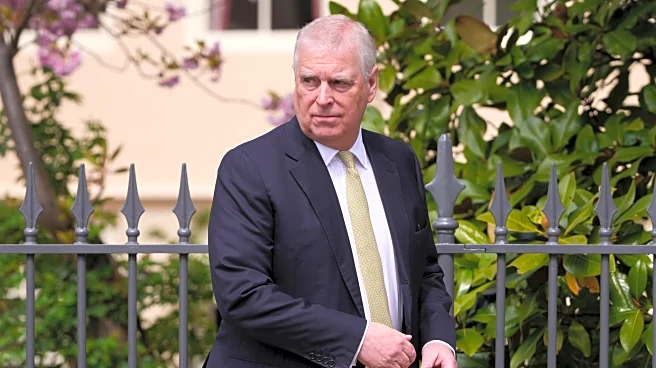What's Happening?
Ehud Ben Zvi, president of the Society of Biblical Literature (SBL) and professor emeritus at the University of Alberta, is addressing the challenges and opportunities faced by academia in the context of rapid global changes. At the upcoming AAR/SBL conference
in Boston, Ben Zvi emphasizes the importance of scholars in understanding and adapting to political, social, and demographic shifts. He highlights the role of biblical studies in providing a broader vision that encompasses the social and cultural systems influencing text interpretation. The conference aims to foster dialogue among diverse participants, generating new ideas and connections that extend beyond individual sessions.
Why It's Important?
The discussions led by Ehud Ben Zvi at the AAR/SBL conference are significant as they address the evolving role of academia in a world experiencing constant change. By focusing on the broader implications of biblical studies, scholars can contribute to societal understanding and adaptation to these changes. The conference serves as a platform for interdisciplinary dialogue, encouraging collaboration and innovation across various fields. This approach can help academia remain relevant and responsive to global challenges, potentially influencing public policy and societal norms.
What's Next?
The AAR/SBL conference in Boston is expected to facilitate numerous conversations among attendees, fostering new connections and ideas. Ehud Ben Zvi's plenary address, titled 'Open the Gates: Exploring Futures for Us as Scholars, for Our Field, and for Our Society of Biblical Literature,' will encourage participants to envision diverse futures and engage in meaningful discussions. The conference's emphasis on horizontality over verticality suggests a shift towards more collaborative and inclusive academic practices, which may influence future conferences and scholarly interactions.
Beyond the Headlines
The emphasis on creating shared narratives and exploring multiple futures highlights the ethical and cultural dimensions of academic work. By encouraging scholars to look beyond individual texts and consider broader social contexts, the conference promotes a holistic approach to understanding change. This perspective can lead to more inclusive and diverse academic practices, potentially reshaping the field of biblical studies and its impact on society.


















